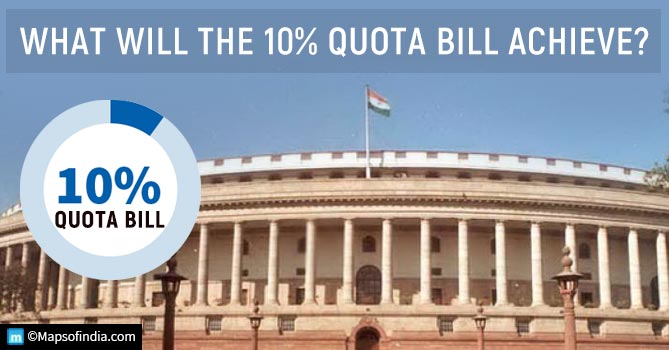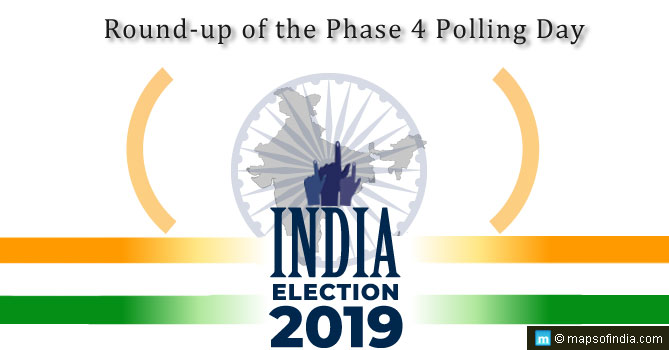The central government’s 10% quota bill has been approved by both the houses of Parliament, well on its way to now become a law. Ever since the Union Cabinet gave its nod, the reservation bill has stirred up debates in our political sphere. But, why?
What makes the quota bill so special, and why are there two sides forming on the issue? Read on to find out.
What is the reservation bill about?
The 10% quota bill has been introduced in our system to help the economically backward section of people who belong to the upper castes. In other words, if somebody from the “general” category, belongs to the given definition of ‘economically backward’, they will benefit from the bill. The next question is, how has this economical benchmark been set? Below are a few of those conditions:
a. Agricultural land ownership should be less than 5 acres or
b. family income is 8 lakh or less, per annum
c. a house of about 100 square yards in a municipality or
d. house of about 200 yards in a non-notified colony.
The constitution of India already provides reservation for people belonging to the Scheduled Castes, Scheduled Tribes, and Other Backward Classes, amounting up to 49.5% approximately.
Why is the bill being opposed?
Although the 10% reservation has been approved by the parliament, it has received mixed reactions, both from within and outside. Looking from a political angle, the timing of the bill seems highly convenient to many, with the Lok Sabha elections being just a few months away. Even the leaders of opposition who gave their final vote in support of the bill, have called it a political agenda by the ruling party to please the upper castes.
From a legal perspective, the Supreme Court of India had laid down an upper limit of 50% for the total reservation share. This can be breached, however, only under extraordinary circumstances. With the introduction of the new 10% reservation, the total reservation will go beyond the given limit, while not necessarily qualifying as an “extraordinary circumstance”. This is also one reason why many think that despite the legislative nod, the bill not pass the scrutiny of law.
Bringing in a social angle, the bill has several problems to it. For one, the criteria needed to qualify for the reservation is dicey, to say the least. Is an 8 lakh per annum upper cap on income really sufficient, and enough to declare a person eligible for the quota? We have to study our country’s economic and social structure in great detail, to be able to set a benchmark like that, and make sure it remains fair.
Then, there is a whole exclusive debate that can be stirred on the reservation itself. The question is, is economic backwardness, that too without a proper study, a right criteria to grant reservation? And, can it kept at the same pedestal as the reservation granted to those who face social backwardness in the country? Not really.
In 1992, the historical Indira Swahney and others vs Union of India case,the Supreme Court bench had declared a 10% reservation granted on economic basis as invalid. The reason was, that an economic standpoint alone, cannot be a criteria to determine or ascertain backwardness. It was the same judgement that first introduced the 50% cap on reservation.
Conclusion
Certainly, the quota bill has multiple glitches, and a decision like this one, needs to be made after deliberate and careful introspection. Reservation was introduced as a means to uplift those who had been oppressed, and to ensure equality. The criteria, then, can only be determined with cautious steps. While the bill may well be on its way to become a law, the issues interlinked aren’t as simple as mere binary.
Related Post: Reservation In India





